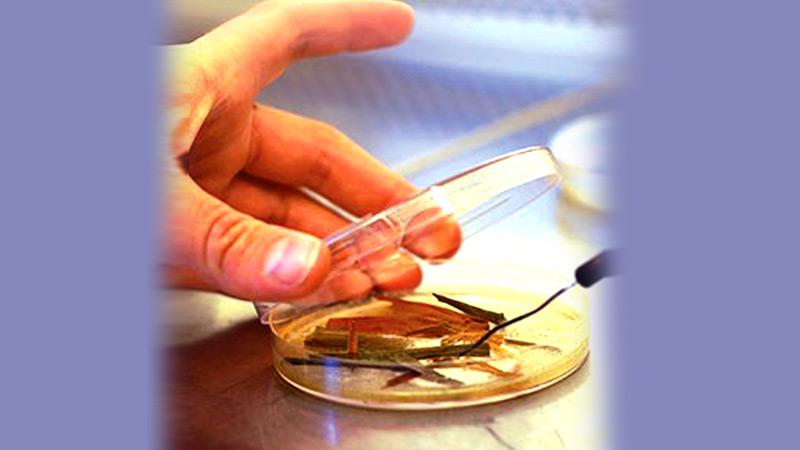
The 2nd National Symposium of Plant Health 2022 will be held on June 25, 2022 as a virtual event. The theme of the Symposium is “Towards Sustainable and Eco-Friendly Strategies for Plant Disease Management.” The Symposium is organised by the Sri Lanka Association for Mycology and Plant Pathology (SLAMPP).
Keynote addresses will be delivered by two renowned Plant Pathologists, Emeritus Prof. Pratibha Sharma, SKN College of Agriculture, India and Dr. Romina Gazis, Department of Plant Pathology, University of Florida, USA at the Inaugural Session and the Session II respectively.
Role of Plant Pathology in Food Security
Plant Pathology, the study of plant disease, continues to be of paramount importance in maintaining food security through improving food supplies.
Food security protects the right of all human beings to live in dignity, free from hunger, food insecurity and malnutrition (World Bank). There was a surge in commodity prices, and the cost and shortages of agricultural in-puts such as fertiliser, pesticides and energy in Sri Lanka, threatening the country’s food security. In this situation, agriculture and food supply chains are needed to become more resilient and sustainable.
The climate change is predicted to increase the number and severity of plant diseases requiring more robust disease control methods to sustain food supply and maintain food security.
Although plant disease control remains the primary objective of Plant Pathologists, the knowledge concerning other aspects of plant disease continues to increase.
The first plant disease of highly destructive nature in Sri Lanka (then Ceylon) was the coffee rust in 1867 which ravaged the flourishing coffee cultivation in the hill country. The disease broke out in Madulsima (presently Badulla District), spread rapidly over the entire coffee growing districts abandoning coffee cultivation in the highlands.
Tea cultivation
This was also the beginning of tea cultivation in Ceylon. Pioneering efforts by two British scientists to study the coffee rust disease, though late, were highlights in the annals of Plant Pathology.
This led to the birth of Plant Pathology in Ceylon, opening the first chapter on plant disease investigations laying the foundation for Tropical Plant Pathology.
Mycology started as a discipline in Ceylon during the latter part of the 18th Century, by British scientists even before the coffee rust epidemic broke out.
Studies continued steadily and over 2,100 fungi were identified by 1950, 60 percent of which were new Ceylon species. Today, both Plant Pathology and Mycology are practiced in Sri Lanka as a science at a highest level of professionalism.
SLAMPP
Sri Lanka Association for Mycology and Plant Pathology (SLAMPP), founded in 2007 with the objective of promoting the advancement of knowledge in Mycology and Plant Pathology, is an Associate Member of the International Society of Plant Pathology (ISPP) and affiliated to the Asian Mycological Association (AMA), and Asian Association of Societies of Plant Pathology (AASPP.)
